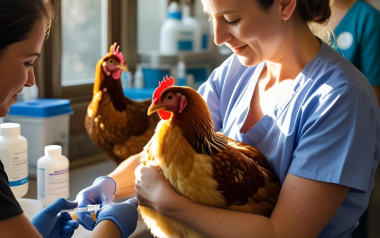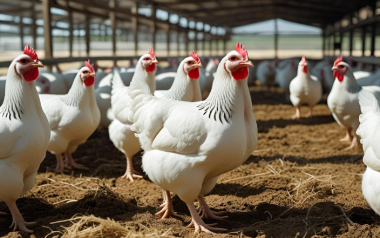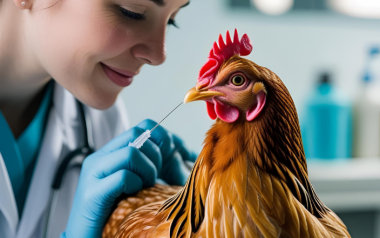Sources: Available upon request.
11 Nov 2024
Turkey reports first H5N1 Avian Influenza outbreak in over a year
In a concerning development, Turkey has reported its first outbreak of highly pathogenic avian influenza (H5N1) in over a year. The outbreak was detected in a commercial poultry farm in the Meram district of Konya province.
In a concerning development, Turkey has reported its first outbreak of highly pathogenic avian influenza (H5N1) in over a year. The outbreak was detected in a commercial poultry farm in the Meram district of Konya province. This marks a significant event as it highlights the persistent threat of avian influenza in the region and the ongoing challenges in controlling its spread.
Details of the outbreak
The outbreak was identified after 211 birds out of a flock of 790,000 died suddenly, prompting immediate investigation by veterinary authorities. The Ministry of Agriculture and Forestry of Turkey confirmed the presence of the H5N1 virus, a highly pathogenic strain known for its severe impact on poultry and potential risk to human health.
Response measures
In response to the outbreak, Turkish authorities have implemented stringent biosecurity measures to contain the virus. These measures include the culling of all birds in the affected farm, destruction of potentially contaminated feed and eggs, and the establishment of a 10-kilometer surveillance zone around the outbreak site. These steps are crucial to prevent the virus from spreading to other farms and regions.
Global context
The H5N1 strain of avian influenza has been a significant concern globally due to its high mortality rate in birds and its potential to infect humans. Although human cases are rare, they can be severe and sometimes fatal. The World Organization for Animal Health (WOAH) has been monitoring the situation closely and providing guidance to affected countries on managing outbreaks.
Implications for the poultry industry
The outbreak in Turkey is part of a broader pattern of avian influenza occurrences that have affected poultry industries worldwide. The economic impact of such outbreaks can be substantial, leading to losses in poultry production, trade restrictions, and increased costs for biosecurity measures. For Turkey, a country with a significant poultry industry, the outbreak underscores the need for ongoing vigilance and investment in disease prevention and control measures.
Future outlook
Moving forward, it is essential for Turkey and other countries to enhance their surveillance and response capabilities to manage avian influenza outbreaks effectively. This includes improving early detection systems, increasing public awareness, and fostering international cooperation to share information and best practices. The recent outbreak serves as a reminder of the persistent threat posed by avian influenza and the importance of maintaining robust biosecurity protocols to protect both animal and human health.
In conclusion, Turkey’s recent H5N1 outbreak highlights the ongoing challenges in managing avian influenza. While the immediate response has been swift and comprehensive, continued efforts are needed to prevent future outbreaks and mitigate their impact on the poultry industry and public health.









































